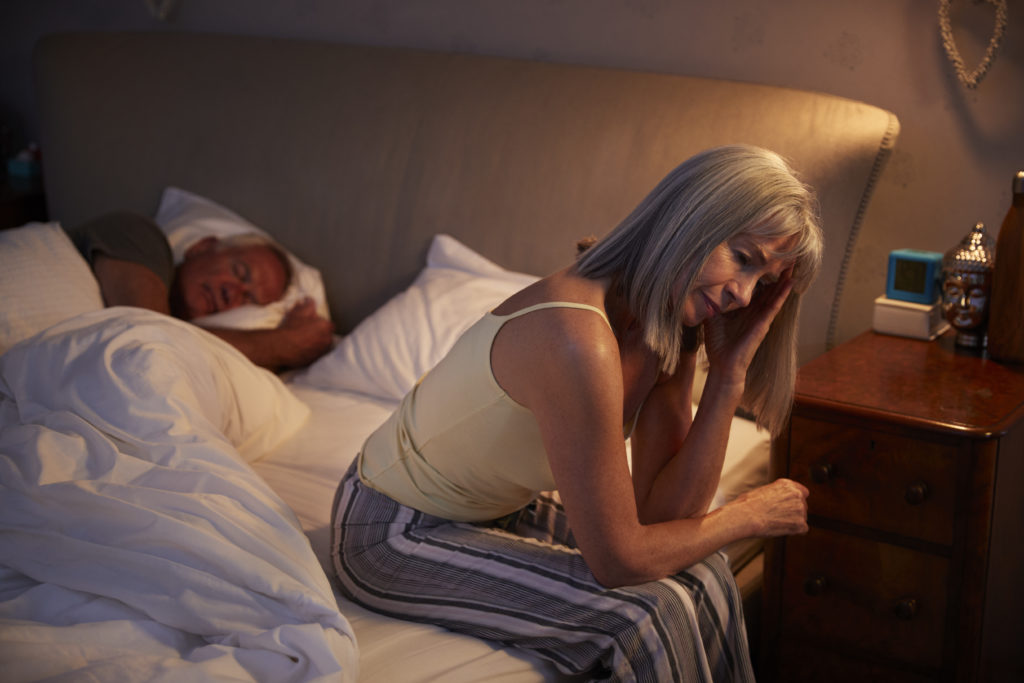Senior Living: Dealing with Insomnia

As we age, many seniors will report that they develop problems getting a full night’s sleep. Sometimes these problems will stem from issues falling asleep or even staying asleep throughout the night. In fact, many seniors experience a condition called insomnia. While it’s very common, sleep problems like this aren’t normal.
Here’s everything you should know about elderly insomnia and what you can do about it.
Recognize the Signs of Insomnia
The following sleep disturbances can be common signs of insomnia:
- Difficulty falling asleep
- Waking up during the night
- Waking up too early
- Daytime sleepiness
- Irritability or depression
- Trouble focusing
Common Causes of Insomnia In Seniors
Wondering why you can’t sleep? One of these may be the answer:
- Stress or anxiety. Worries about daily life, health, finances or life-changing events such as the death of a loved one may affect your sleep.
- Poor sleep habits. Irregular sleep schedules, keeping the TV on while you try to fall asleep or drinking before bed can create sleep issues.
- Medical conditions. Some health conditions as well as certain medications may make is hard to fall or stay asleep.
- Lack of exercise. People who are sedentary often have trouble sleeping.
- Movement or other sleep disorders. People who suffer from restless leg syndrome, sleep apnea or snoring are more likely to suffer from insomnia than those who don’t.
Tips For Getting Better Sleep
If you’re struggling with insomnia, here are some things that may help:
- Improve your sleep hygiene. Go to bed and wake up at the same time every day, keep all electronic screens out of the bedroom (try not to fall asleep with the tv on) and make sure your room is comfortable, dark and cool.
- Get more exercise. Aim for half an hour of aerobic activity a day, such as taking a brisk walk. If you have mobility issues, there are many exercises that you can do sitting down. Each of our communities offers unique programs and opportunities to get active and connect with others.
- Avoid caffeine and alcohol before bed. These can disrupt your body’s natural sleep cycle. Stay away from coffee and tea after two in the afternoon and alcohol at least three hours before bed.
- Reduce stress. Try to clear your mind by writing in a journal, meditating or reading something. If this doesn’t help, find someone to talk to about what you’re feeling. Often, getting your worries off your chest is all it takes to get some rest.
If you’ve tried all these tips, and you’re still struggling to fall or stay asleep, consult your healthcare provider for further assistance.
Retirement Communities in Western Canada and Quebec
Losing sleep over where you’ll spend your golden years? Choose a Retirement Concepts senior living community. Our many locations offer great food, companionship and lots of fun things to do. Contact a community relations manager today to learn more and sign up for a free tour!